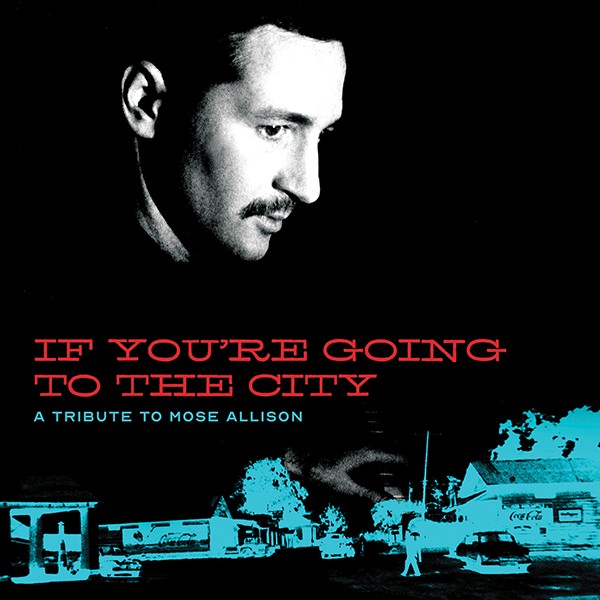There’s sweet irony in the fact that Mose Allison of Tippo, Mississippi, ascended the heights of jazz and blues acclaim with the humblest of voices. With Mose, there was no bluster, only his unaffected, conversational delivery of the piquant lyrics that were his trademark. Incredibly, he somehow evoked both Tippo and Manhattan in equal measure, remaining true to this unique alchemy through all his days.
Since his death in November 2016, just four days after his 89th birthday, there have been numerous live tributes to his work. But now, thanks to Fat Possum Records, a fully conceived tribute album has dropped that serves as a testament to Allison’s influence across so many genres. Of course, music history itself has already proven this. Like many, my first exposure to his work was through the Who (“Young Man Blues”) and the Clash (“Look Here”). Later, I took a lifelong dive into his many LPs, but the new If You’re Going to the City: A Tribute to Mose Allison has surprised even a nerd like me with its heretofore unknown deep cuts.

Case in point: “Monsters of the Id,” a duet by Elvis Costello and Mose’s daughter, Amy. With Amy Allison, the apple did not fall far from the tree, though her penchant for dark country songs makes the Long Island native more rural than her old man. In this cover of a 1970 Mose tune, which inexplicably features Mose himself on piano (no doubt through the miracle of recording technology), Amy and Elvis revel in the unique timbres of their voices, complementing lyrics too well-suited to our times: “Prehistoric ghouls are making their own rules, and resurrected Huns are passing out the guns …”
And this isn’t the only beautifully sung meditation on grim humanity. The subtly wrought fragility of “The Way of the World,” sung by Richard Julian with John Chin on piano, froze me in my tracks. This tune and “Monsters of the Id” are surely the clearest nods to Mose’s deep grasp of jazz. Yes, he was a bluesman, but one not cowed by the greater complexity of jazz composition — and he pulled off both with a natural touch.
A bit of those wild jazz changes are also heard on Fiona Apple’s version of “Your Molecular Structure,” a surprising delight. While I’m predisposed to dislike big-name celebrities staking their claim on a beloved slice of history, Apple’s somewhat rattled delivery is a perfect match with the song, especially as backed by “the Tippo All Stars,” including keyboard great Benmont Tench.
Others revel more directly in the blues and folk idioms that also color Allison’s work. Taj Mahal and band turn in a version of “Your Mind is On Vacation” that you might hear on Beale Street. A similar approach is taken by Jackson Browne, Peter Case, and Dave and Phil Alvin (of the Blasters) in their respective contributions — all garnished with laudable servings of grit and mud. The collaboration between Ben Harper and Charlie Musselwhite on “Nightclub” is arguably the standout in this crop.
A smoother sound is offered by Bonnie Raitt, with her live reprise of “Everybody’s Crying Mercy,” a Mose tune she first covered in 1973 (inexplicably titled here as “Everyone’s Crying Mercy”).
Then there are the truly gonzo covers, where artists as diverse as Robbie Fulks, Iggy Pop, and Frank Black let their imaginations run wild, setting Mose’s work in wholly unpredictable worlds. Fulks begins his track intoning the lyrics seemingly in an attic full of rattling, scratching stringed instruments, until it gradually takes shape as off-kilter bluegrass. Frank Black, of Pixies fame, presents a more conventional indie-rock setting for “Numbers on Paper,” but the weird chords and Black’s own voice, forever threatening a nervous breakdown, give it an intriguingly neurotic edge. And Iggy Pop offers the true outlier here, with a track sounding like both the Art of Noise and the Art Ensemble of Chicago. The fact that the singer can’t seem to find the downbeat makes it especially disarming and idiosyncratic. Surely Mose wouldn’t want it any other way.
Proceeds from If You’re Going to the City: A Tribute to Mose Allison, released November 29th, will be donated to the Sweet Relief Musicians Fund.